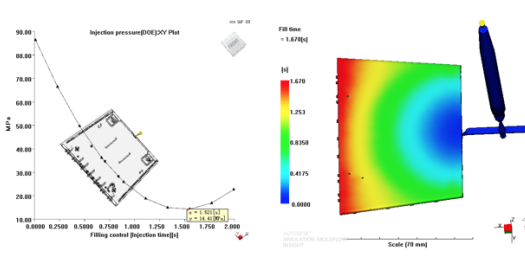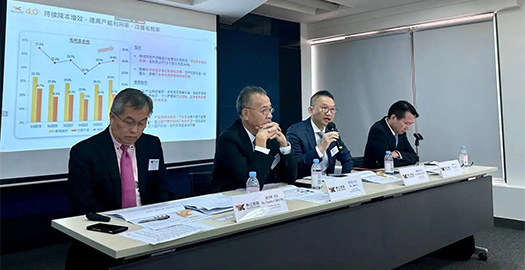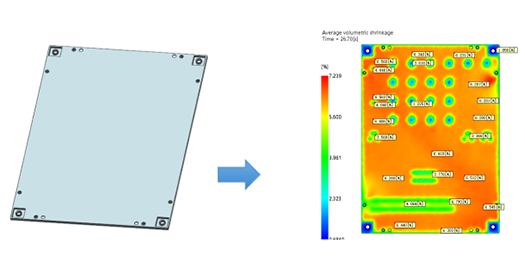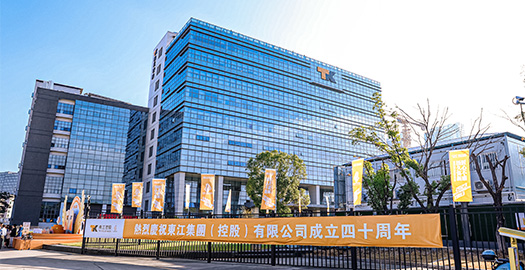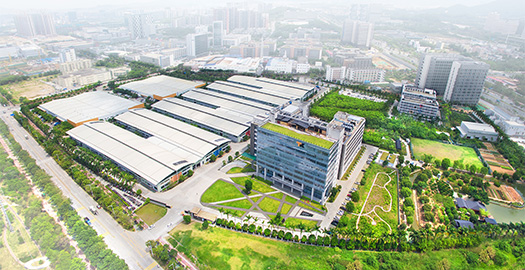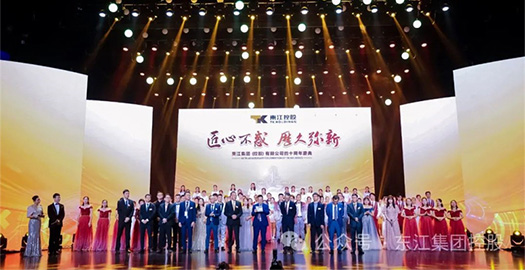Hong Kong Main
Board Listing
Stock Code: 2283
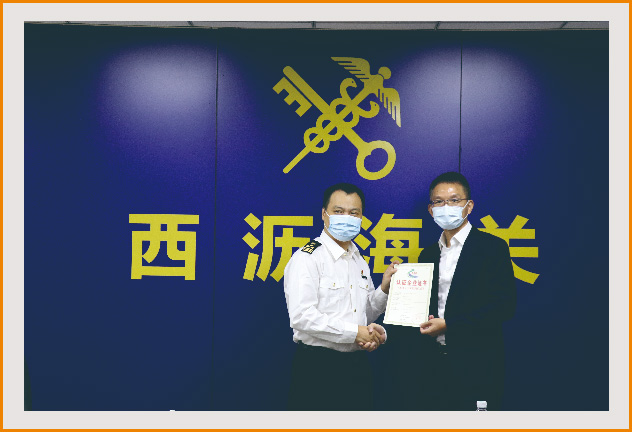
We warmly congratulate TK Mold (Shenzhen) Limited on successfully passing customs review and officially becoming an AEO Advanced Certified Enterprise.
AEO (Authorized Economic Operator) is a system that builds cooperative relationships between customs and enterprises. It provides customs facilitation measures from both domestic and mutually recognized countries to qualifying enterprises, sharing compliance and security responsibilities, ensuring supply chain security and trade facilitation. The AEO system emerged from two main factors: first, the global security repositioning after the U.S. 9/11 incident; and second, China's planned and steady advancement of its credit system construction. The AEO system strikes a balance between security and facilitation, emphasizing enterprises' responsibility for voluntary compliance and embodying the principle of "facilitation for honest and law-abiding businesses, strict punishment for violations and dishonesty."
In 2014, the General Administration of Customs issued the "Interim Measures of Customs Administration of the People's Republic of China for Enterprise Credit Management," replacing the original "Measures of Customs Administration of the People's Republic of China for Enterprise Classification Management," marking China's official implementation of the AEO certification system. China's AEO enterprises are divided into Advanced Certified Enterprises (ACE) and Generally Certified Enterprises (GCE). Currently, there are 3,239 advanced certified enterprises and 25,501 generally certified enterprises nationwide, accounting for 1.94% of all registered enterprises. In a sense, AEO enterprises are VIPs of customs and represent the gold standard for foreign trade import-export enterprises. They enjoy benefits across three dimensions: "Most Convenient Customs Clearance, Best Domestic Benefits, and Highest International Recognition."
Most Convenient Customs Clearance: Generally certified enterprises enjoy benefits including priority customs clearance, lower inspection rates, and reduced security deposit requirements. Advanced certified enterprises enjoy additional benefits beyond those of generally certified enterprises, including a customs coordinator mechanism, priority clearance after trade interruption recovery, security deposit exemption, reduced frequency of audits and inspections, as well as various facilitation measures implemented by directly affiliated customs offices based on local import-export enterprise circumstances.
Domestic Benefits: In October 2016, 40 central departments jointly signed the "Memorandum of Cooperation on Joint Incentives for Customs Advanced Certified Enterprises." Advanced certified enterprises can enjoy 49 joint incentive measures, categorized into four types: green channel and priority measures, reduced inspection measures, simplified procedure measures, and others.
International Recognition: Chinese Customs has achieved AEO mutual recognition with customs authorities of 42 countries (regions) across 15 economies, and launched an AEO mutual recognition pilot program between cross-strait customs in October 2016. AEO advanced certified enterprises enjoy international mutual recognition, receiving corresponding facilitation measures for customs clearance in partner countries.
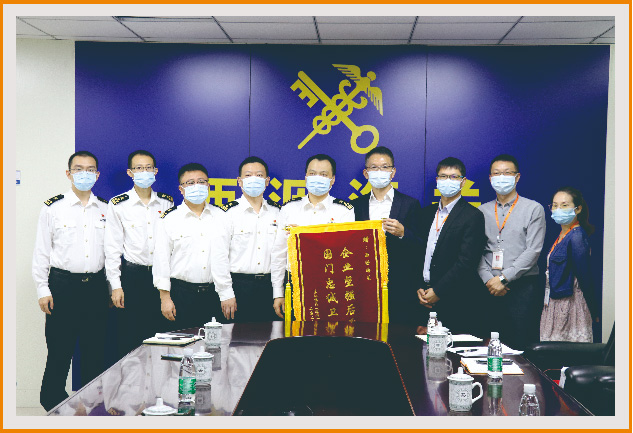
The AEO system encompasses extensive content with high standards and strict requirements, making certification extremely challenging. The certification system consists of four modules with 31 items: Internal Control (including internal training, organizational structure, document review, document custody, import-export activities, internal audit system, quality management, improvement mechanisms, information systems, data management, and information security); Financial Status (including accounting information and comprehensive financial condition); Compliance Standards (including personnel compliance, enterprise compliance, transmission standards, tax payment, management requirements, and external credit); and Trade Security (including facility security, access security, personnel security, business partner security, cargo and goods security, container security, transportation security, crisis management, and security training). Certification requires simultaneously meeting three conditions: First, no scoring items can be completely non-compliant (-2 points); Second, no more than three basic compliance (-1 point) items (marked as 1, 2, 3) in both Internal Control and Trade Security standards; Third, total standard score must be 95 points or above.
From the establishment of TKM's Customs AEO project team in July 2017 to successful customs review, over 700 days and nights were spent collectively facing and solving challenges. The journey progressed through learning standards, understanding standards, interpreting standards, applying standards, and meeting standards - a truly demanding process. This achievement relied on guidance and support from company leadership, tireless effort from project team members, professional support from consultants, and careful guidance from customs experts. Obtaining AEO certification marks not the end but a new beginning. Work must continue according to more compliant and secure system requirements, with continuous improvements tailored to circumstances to maintain compliance with AEO certification requirements.
The key focus now is implementing AEO policies effectively, rather than simply framing the certificate. This involves correctly including AEO information in import-export declarations to enjoy expedited customs clearance and reduced inspection rates, working directly with AEO enterprise coordinators to resolve issues; strengthening client communication and including AEO numbers on destination country customs clearance documents to enjoy facilitation measures; fully utilizing AEO certification to exempt clients from other audit certifications (such as anti-terrorism certification and trade security audits); and supporting other departments in applying for government excellence evaluations and rewards, maximizing all available preferential policies.
Regarding AEO certification, more enterprises are recognizing its value, with many eagerly planning to apply.
From a macro perspective, this indicates the success of AEO certification cultivation efforts in recent years. The joint incentive policies for AEO certified enterprises from the General Administration of Customs and various government departments have gained widespread enterprise recognition, which is a positive development.
However, there are some common misconceptions about AEO certification:
The first misconception is believing that AEO certification merely requires preparing and submitting a well-presented set of application materials to customs. Under this view, companies tend to seek a consulting firm for "full agency representation," passively waiting for certification.
The second misconception is assuming that once certification is obtained, everything is settled for at least three years with no need for further AEO-related work. Under this view, many enterprises treat certification approval as the endpoint of AEO work.
AEO certification is an effective means of enhancing competitiveness and better serving market expansion.
AEO certification is a management optimization project that improves internal capabilities and helps reduce costs while increasing efficiency.
AEO certification is a systematic project requiring close cooperation among departments, strengthening company cohesion.
AEO certification requires CEO support and is a CEO-driven initiative.
AEO is a method, means, and process serving the corporate mission of making customers successful and dedicated to making TK a global leading one-stop injection molding solutions provider.
